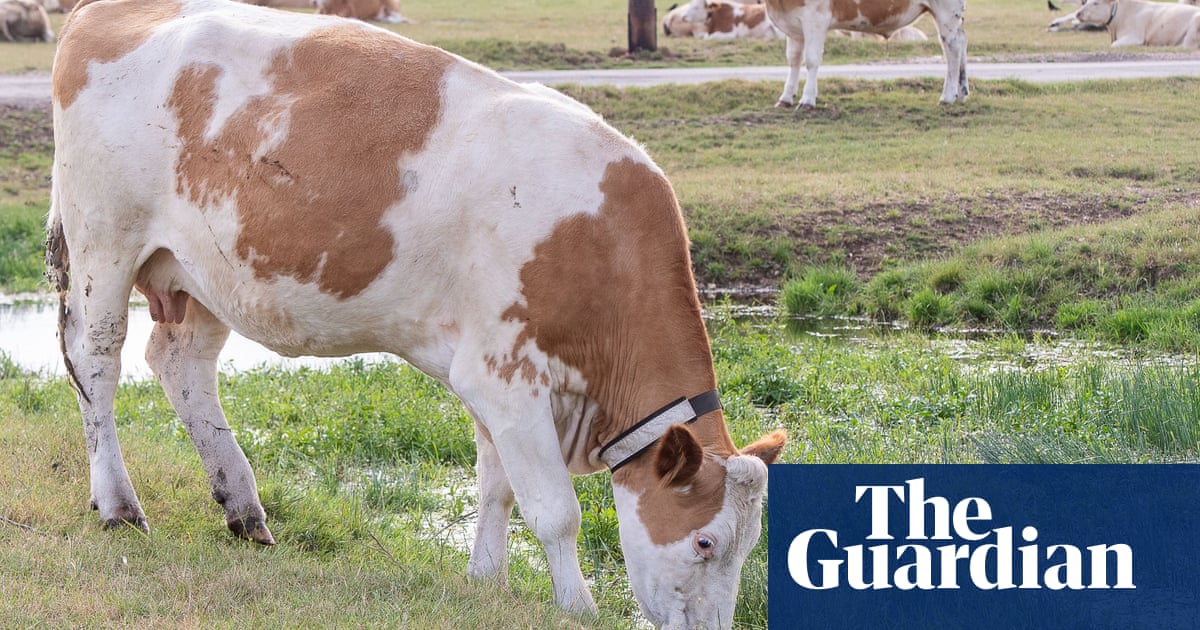Cheap chicken and beef from Australia, Poland and Uruguay is on the rise on UK supermarket shelves, according to the National Farmers’ Union, as supermarkets look for money-saving options.
The NFU regularly monitors supermarket shelves and notes that Morrisons is now selling raw chicken from Poland in its poultry aisle. Chicken in Poland is generally produced to different standards from those in the UK, and is cheaper as a result. Morrisons requires that for its UK chicken, poultry must be kept at amaximum stocking densityof 30kg/m2, giving the chickens more space to roam. In Poland, this is up to39kg/m2.
The retailer has also begun to sell sirloin steak from Australia, made possible, according to NFU sources, by the unpopular trade deal struck byLiz Trusswith Australia. Australian beef, like Polish chicken, is generally produced to different animal welfare and environmental standards than meat in the UK. Feedlots arecommonly usedand, according to the RSPCA in Australia, the country is ranked D for farm animal welfare compared with B for the UK.
Morrisons sponsors the TV show Clarkson’s Farm andfrequently reiteratesits commitment to British farmers.
Tim Farron, the Liberal Democrat environment spokesperson, said: “This is appalling fromMorrisons. They seek kudos for their UK sourcing but then sneakily do this, undermining British farmers and undermining their own integrity and brand.”
Other supermarkets are also sourcing meat from farther afield than previously.Asdais now selling sirloin and ribeye steaks from Uruguay, priced much lower than their UK counterparts. They are priced at £21.94/kg and £23.70/kg respectively, which is about 20% less than their UK and Irish beef, priced at £27.93/kg for sirloin and £28.81 for ribeye.
Stuart Roberts, a beef, sheep and cereal farmer from Hertfordshire, said: “With farmers under pressure from multiple directions I’d be fascinated to learn why Asda have decided this is an appropriate time to start stocking Uruguayan beef. There is no excuse for this huge betrayal of the UK’s hard-working family farms. Consumers and farmers deserve better.”
Sainsbury’s has also been found to be stocking beef steaks from New Zealand.
Supermarkets said they were doing this to offer “outstanding value” to customers. The cost of red meat has soared in recent months, with UK farm gate beef prices at 713.3p/kg on 3 May, according to the Agriculture and Horticulture Development Board (AHDB), a 43.8% year-on-year increase. The AHDB predicts that beef production will fall by 5% in the next year due to a decline in farming profitability and anexpected cut to subsidies.
The NFU livestock board chair, David Barton, said: “It’s deeply concerning to see major retailers now move away from their previous commitments to sourcing British … in favour of imports, many of which have been produced to lower standards. Farmers’ longstanding partnerships with retailers have supported sustainable supply chains, so this shift is alarming.
“Decisions to renege on sourcing commitments erode trust and damage farmer confidence at a time when the sector is facing immense challenges and, with increased global insecurity, the need to build sustainable food supply chains has never been more important.
“British farmers have invested in higher standards such as reducing antibiotic use in beef and lowering poultry stocking densities in sheds. But delivering these standards comes with additional financial costs. Long-term sourcing commitments from retailers are essential to ensuring that the high welfare British food consumers want remains available.”
A Morrisons spokesperson said: “Morrisons remains 100% British on all our meat counters. In our aisles – alongside our New Zealand lamb – we are introducing trials of some imported meat from trusted suppliers to help us offer outstanding value through the seasons and through any supply fluctuations.
“We are proud to be the single biggest direct supermarket customer of British farming and are looking to grow the overall volumes of British meat through Myton Food Group.”
An Asda spokesperson said: “We always look to offer customers a wide choice of products to suit all budgets, and the country of origin is always clearly labelled on pack so customers can make an informed choice about their purchases. Grass & Grill steaks are provided by a branded partner and available in our stores for a limited time only. All of Asda’s own brand fresh beef continues to be sourced from farms in the UK and Republic of Ireland.”
Sainsbury’s has been contacted for comment.
